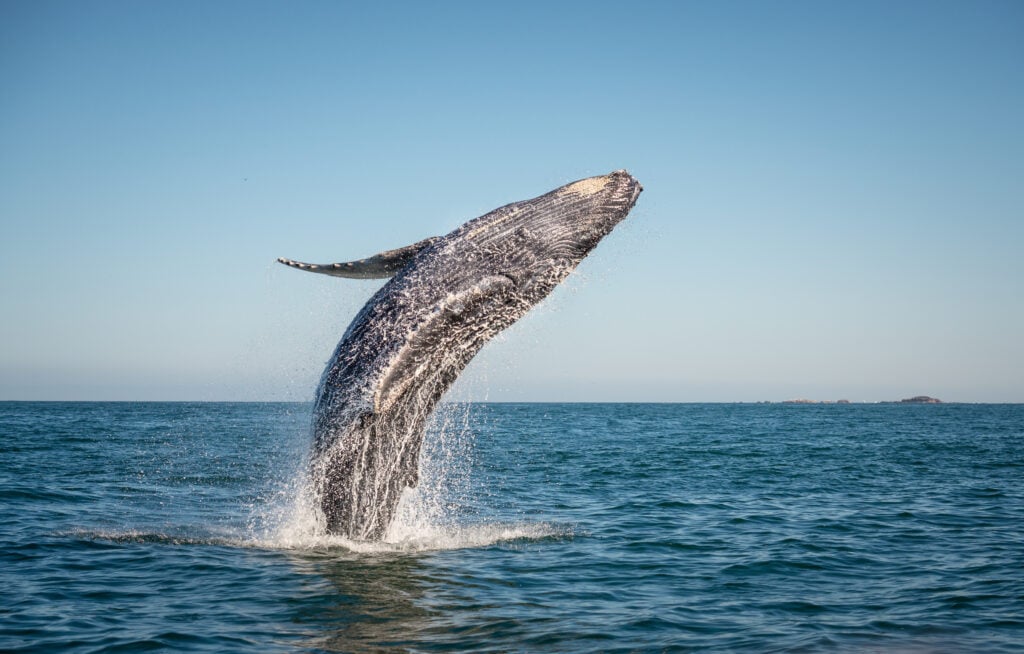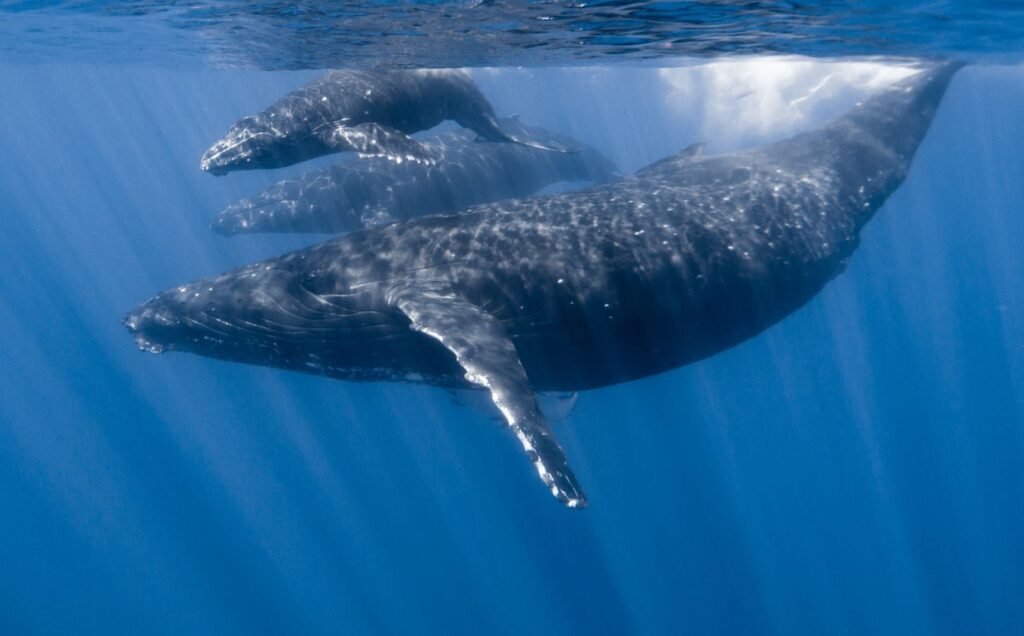A number of countries have voiced their support for whaling to be made legal, sparking fears that the 40-year-old ban could be overturned.
The International Whaling Commission (IWC) recently took place in Portorož, Slovenia. It saw Antigua and Barbuda submit a resolution seeking to reopen a formal debate on overturning the commercial whaling ban.
The Caribbean country also joined together with Cambodia, Guinea, and the Gambia to co-sponsor a separate resolution arguing that whaling could address poverty and food insecurity.
Commercial whaling is the practice of hunting whales for the purpose of selling their meat and other derived products. There has been an international ban on the practice since 1986, due to the fact that it led to the deaths of some 2.9 million whales and a “catastrophic decline” of the species.
The fight to bring back whaling
This isn’t the first time countries have voiced their support for overturning the ban. At the last meeting of its 88 member countries in Brazil in 2018, the IWC rejected Japan’s proposal to lift the ban. Japan subsequently left the IWC, and resumed commercial whaling.
According to reports, the IWC has faced financial difficulties after the departure of Japan, and Covid-19 pandemic, and global economic problems. Around a quarter of the member countries are thought to have not paid annual dues that the IWC says are “critical” to its continuation.
Wendy Higgins, director of international media at Humane Society International, told the Guardian: “People assume the whaling ban, which has saved the lives of hundreds and thousands of cetaceans, is done and dusted. But the ban is in jeopardy as long as there are nations in the IWC who will vote to return to whaling.”
Jiří Mach, an IWC commissioner for the Czech Republic, added that it was “absolutely clear” that the position of the EU and was to “support the maintenance and full implementation of the moratorium on commercial whaling in the schedule and to oppose any proposal which could undermine the moratorium or potentially lead to threats to whale stocks.”
The problem with commercial whaling
Unsurprisingly, commercial whaling comes with huge animal welfare costs. Whales will often be chased by whaling boats and struck with a harpoon, which then explodes inside them.
In terms of the environment, dwindling whale numbers cause havoc for biodiversity. As well as the whales themselves, disruption of the food chain has led to other species becoming extinct or endangered.

Whales also play a part in removing carbon from the atmosphere, meaning removing them directly contributes to the climate crisis. A 2010 study found that, prior to industrial whaling, whale populations would have sunk between 190,000 to 1.9 million tonnes of carbon to the bottom of the ocean each year.
This would be the equivalent of taking between 40,000 and 410,000 cars off the road annually. When the whale is killed, however, this carbon is released back into the atmosphere.
According to animal rights groups, overturning a ban on whaling could prove catastrophic for a species already threatened by human activity.
“The global moratorium on commercial whaling has spared the lives of hundreds of thousands of cetaceans and been instrumental in pulling many species back from the brink of extinction, Claire Bass, executive director of Humane Society International/UK, told Plant Based News.
“However, whales still face a myriad of threats from human activities including fisheries bycatch, pollution, ship strikes and the urgent climate crisis. It’s imperative that the moratorium stays in place to ensure these ocean giants aren’t left even more vulnerable in increasingly hostile seas.”






